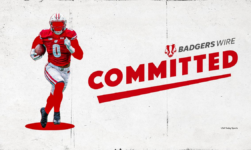
The fallout from Florida State’s exclusion from the College Football Playoff ramped up this week when Attorney General Ashley Moody made the first step in an antitrust investigation into the playoff.
It’s a complicated case, even by the standards of the handful of antitrust experts we consulted. Attorney Hal K. Litchford called it a “fairly advanced antitrust issue.”
Here are some questions and answers on why the state is looking into a 13-member committee picking 12-1 Alabama over undefeated FSU.
What happened this week?
Moody issued an antitrust civil investigative demand, or CID. It acts like a civil subpoena. In this case, the Attorney General’s Office asked the playoff for a broad range of information and documents about its decision-making process. The topics include: protocols, votes, revenue figures and communications with ESPN, the SEC and ACC.
What is antitrust law?
The core idea is that healthy competition powers our economy, helping the individuals in each marketplace and society as a whole. Activities that stifle that healthy competition — like collusion between competitors or price-fixing — could violate those laws.
What does that have to do with college football?
“That’s the $64,000 question,” said Litchford, senior counsel with Orlando’s Baker Donelson law firm.
Think of the playoff as a marketplace. In this case, some competitors (selection committee members who are employees of other schools) picked one competitor (Alabama) over another (FSU). There’s nothing inherently wrong with that. Trade groups, for example, have some leeway to make their own rules. Some can be subjective.
“What this civil investigative demand is trying to do is to see whether there were forces at play beyond what’s sort of been the stated rationale for selecting the four teams,” said Richard Doran, a…
..






